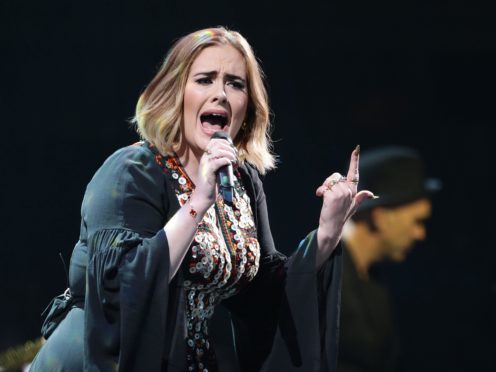There was an increase in the number of women becoming songwriters and composers in 2020 but the industry remains heavily skewed towards men, according to new data.
Some 1,971 women registered as professionals in the UK last year, representing a 12.3% year-on-year increase compared to 2019.
However, the sector remains male-dominated, with men accounting for 81.7% of all professional songwriters and composers.
Royalty collection society PRS for Music, which represents more than 150,000 music creators and publishers, is releasing its membership figures to mark International Women’s Day.
It comes after UK Music, which represents the collective interests of the sector, reported that in 2020 the proportion of women working in the music industry at large – from management agencies to record labels – had reached a record high of 49.6%.
PRS for Music’s numbers indicate the top 10 highest-earning female songwriters and composers generated 70% less income than their male counterparts in 2020, reflecting a widening of the gap compared to 2019, where the deficit between the highest-earning men and women was 67%.
Of the songwriters and composers who received royalties in 2020 from their music being streamed, downloaded, broadcast, or performed, only one in six (16.7%) were women.
Andrea Czapary Martin, chief executive of PRS for Music, said: “Celebratory moments in the year like International Women’s Day are an important opportunity to reflect on the progress being made for gender equality around the world.
“PRS for Music and our industry has a long way to go. Initiatives like Keychange, led by our charity partner, PRS Foundation, are doing incredibly important work to create a more sustainable and stronger music community for all genders.
“Creating equity and access to opportunity should be at the forefront of everything we do.”
Songwriter and president of the PRS Members’ Council Michelle Escoffery said: “We are incredibly proud to welcome almost 2,000 women joining the PRS for Music community as professional songwriters and composers in 2020, showing creativity is alive and well.
“Dedication to the craft is still thriving and music creators have shown great resilience through the pandemic.
“While promising, this number represents just a quarter of our new joiners. We continue to work closely with our members and wider music community to inspire the next generation of music creators from all backgrounds, as we all work together towards a more balanced, representative music industry.”
